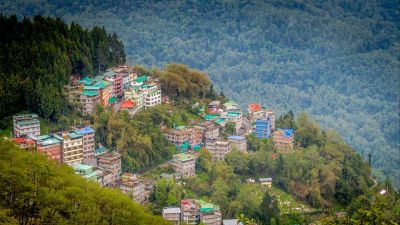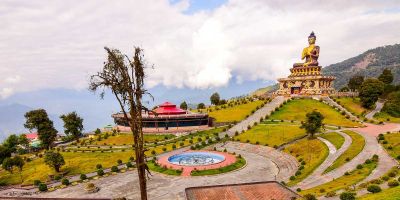Sustainable Practices: Beekeeping and Farming in Sikkim
Sikkim, nestled in the foothills of the Himalayas, is a small state in northeastern India known for its pristine landscapes and rich biodiversity. With its commitment to sustainable development, Sikkim has become a beacon of hope for eco-conscious travelers. One of the most impressive sustainable practices in the state is beekeeping and farming.
The Importance of Sustainable Practices
In today's world, where environmental degradation is a pressing issue, it is crucial to adopt sustainable practices that prioritize the well-being of the planet. Sustainable practices not only promote biodiversity conservation but also contribute to the well-being of local communities by providing employment opportunities and promoting economic growth. Sikkim has recognized the importance of sustainable practices and has made significant efforts to become a model state for eco-tourism.
Beekeeping in Sikkim
Beekeeping plays a vital role in maintaining the ecological balance and promoting biodiversity in Sikkim. The state is home to a variety of indigenous bee species, including the Apis cerana and the Giant Himalayan Honeybee. Beekeeping in Sikkim follows sustainable practices, such as organic farming, to ensure the well-being of the bees and the pollination process. These practices also help in producing high-quality honey and other bee products.
One of the unique aspects of beekeeping in Sikkim is the involvement of local communities. Many traditional village cooperatives have been established, where local farmers actively participate in beekeeping activities. This not only generates income for the community but also promotes the preservation of traditional knowledge and practices.
Farming Practices in Sikkim
Sikkim is well-known for its organic farming practices, which have gained international recognition. The state was declared 100% organic in 2016, making it the first organic state in India. Organic farming in Sikkim follows a nature-centric approach, eschewing the use of pesticides and synthetic fertilizers. Instead, farmers rely on traditional techniques, such as crop rotation, composting, and natural pest control methods.
The adoption of organic farming practices has had several positive impacts on the environment and the local communities. It has helped reduce soil erosion, improve soil fertility, and promote biodiversity. Additionally, organic farming has opened up new avenues of economic growth, with organic produce from Sikkim gaining popularity both domestically and internationally.
Eco-tourism and Sustainable Practices
Sikkim's commitment to sustainable practices has also given rise to eco-tourism initiatives in the state. Travelers now have the opportunity to witness and participate in sustainable farming and beekeeping activities. Many farm stays and homestays in Sikkim offer visitors a chance to experience the local way of life and gain insights into sustainable practices.
These eco-tourism initiatives not only provide a unique travel experience but also create awareness about the importance of sustainable practices. Visitors can learn about organic farming techniques, participate in beekeeping activities, and even taste the delicious organic produce.
Conclusion
Sikkim's focus on sustainable practices, such as beekeeping and organic farming, is truly commendable. Not only do these practices promote biodiversity conservation, but they also contribute to the economic growth and well-being of local communities. Through eco-tourism initiatives, travelers have the opportunity to witness and support these sustainable practices, creating a positive impact on the environment and the local economy.
So, if you are an eco-conscious traveler looking for an unforgettable experience amidst nature, make sure to visit Sikkim and explore its sustainable beekeeping and farming practices.
Don't forget to share this blog post with your friends and family who share your interest in sustainable travel!
Disclaimer : The information provided in this blog is for general informational purposes only. While we strive to keep the content accurate and updated, TravelSetu assumes no liability for errors or omissions. If you believe any part of this blog infringes your rights or causes concern, please notify us immediately at info[at]travelsetu[dot]com so that appropriate action can be taken.




















